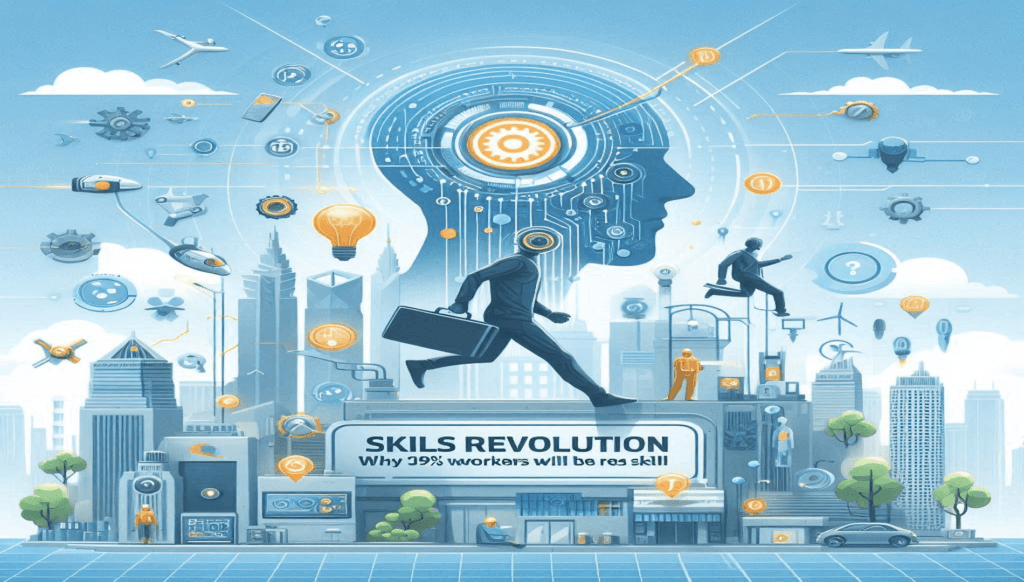
In the intricate game of chess, the knight moves in a unique “L” shape – an unexpected manoeuvre that allows it to leap over other pieces and land in a strategic position. Similarly, in the dynamic arena of hiring, those who execute the Early Talent Engagement strategy make a non-linear move, positioning themselves to win the best candidates long before their competitors even realize the game has truly begun.
Have you ever wondered why some companies consistently secure top-tier talent while others scramble during placement season, often settling for second best? The answer, I believe, lies in their proactive approach. The Unstop Talent Report 2025 paints a clear picture: in the hiring game, if you do not adapt, you lose. Traditional hiring models, heavily reliant on placement season activities, are showing cracks. The rules have changed, and the new currency is skills, adaptability, and real-world readiness. Early Talent Engagement isn’t just a trend; it’s a power move that winning recruiters are leveraging to gain a significant upper hand.
Early Talent Engagement: The Placement Season Predicament- Why Waiting is Losing
Think about the traditional placement season. It’s a period of intense competition, where numerous companies descend upon campuses, vying for the attention of graduating students. But by then, the best talent often already has options. They’ve connected with companies that have made an effort to engage with them earlier, leaving those who waited until the last minute to compete for a potentially smaller and less engaged talent pool. As the report aptly puts it, you are either top of mind for students before they enter the job market, or you are competing for what’s left. It’s like waiting for the best fruit to ripen on its own while your competitors are actively tending to their orchards.
Consider this: a grandmaster’s playbook is not built in a day. Similarly, a winning talent pipeline isn’t forged overnight. It requires consistent effort, strategic interactions, and a genuine interest in nurturing relationships with potential candidates long before they are actively seeking employment. The Unstop Talent Report 2025 is built on raw voices and real stories from the next generation, gathered through conversations with over 700 human resource leaders and 30,000+ Gen Zs. Their insights reveal a clear preference for companies that engage early and meaningfully.
The Knight’s Move Advantage: Benefits of Early Talent Engagement
So, what separates the recruiters who win early through Early Talent Engagement from those stuck making last-minute moves? It’s the understanding that the game begins before the first formal move – before the job postings even go live. Engaging early offers a multitude of benefits:
- Access to a Wider Talent Pool: By connecting with students early, you tap into a pool of individuals who might not even be actively looking yet but are open to exploring opportunities with companies that resonate with them. This allows you to identify and cultivate relationships with high-potential candidates before the intense competition of placement season begins.
- Building Employer Brand Recognition and Affinity: Early Talent Engagement provides a platform to showcase your company culture, values, and growth opportunities. Meaningful touchpoints, such as company-led competitions, job/internship openings on job boards (even for future roles), and employee stories, put your company on students’ radars. This proactive approach helps build brand awareness and fosters a sense of affinity among potential candidates, making them more likely to consider your organization when they enter the job market.
- Identifying and Nurturing Top Talent: Early engagement allows you to identify promising students and build relationships with them over time. Through interactions like competitions and workshops, you can assess their skills, potential, and cultural fit in a less formal setting than a typical interview. This provides a valuable opportunity to nurture their interest and position your company as their employer of choice.
- Reducing Time-to-Hire and Cost-per-Hire: By building relationships with potential candidates early, you can significantly streamline the hiring process when they are ready to apply. Having a pool of engaged and pre-qualified individuals can reduce the time spent on sourcing and screening during peak hiring seasons, ultimately lowering your cost-per-hire.
- Gaining a Competitive Edge: In today’s competitive talent landscape, Early Talent Engagement provides a crucial advantage. While others are focused on the same pool of candidates during placement season, you are already building relationships and positioning yourself where the competition isn’t even looking. This proactive approach allows you to secure top talent before your competitors even have a chance.
The Building Blocks of Early Talent Engagement: Making the Right Moves
So, how can organizations effectively execute the Early Talent Engagement strategy? The Unstop Talent Report 2025 highlights several key approaches that winning recruiters are employing:
- Company-Led Competitions: Students view competitions as the ultimate proving ground, a platform to sharpen their skills and showcase their talent. Companies that run competitions not only hire faster but also hire better. These events provide a valuable opportunity to interact with students, assess their abilities in a real-world context, and build a pipeline of engaged candidates. While nearly 70% of students prioritize competitions, only 25% of recruiters prefer them as their primary engagement strategy, highlighting a significant gap.
- Job and Internship Openings on Job Boards (for Future Roles): Even if you don’t have immediate openings, posting potential future opportunities or highlighting the types of roles you typically recruit for keeps your company visible and signals your ongoing talent needs.
- Sharing Employee Stories and New Joiner Experiences: Authentic posts by employees and new joiners offer students a glimpse into your company culture and the experiences of working at your organization. This humanizes your brand and helps potential candidates envision themselves as part of your team.
- Engaging Social Media Content and Career Pages: Your social media presence and career page are crucial touchpoints for Early Talent Engagement. Share engaging content that showcases your company culture, values, and career growth opportunities. Make your career page informative and easy to navigate, providing students with the information they need to learn more about your organization and potential career paths.
- Employer Branding Activities: Proactive employer branding initiatives, beyond just job posts, create real experiences that make students take notice. This could include virtual information sessions, webinars, or participation in relevant student events (even if not directly for immediate hiring).
- Third-Party Media Features: Securing features in relevant student publications or online platforms can increase your company’s visibility and reach among your target audience. It’s not just about showing up; it’s about engineering engagement before the game even begins. It’s about making students feel your company culture, not just talking about it. It’s about creating moments where students want to be part of your brand, not just posting job openings.
Rethinking the Offer: Compensation as a Key Engagement Tool in Early Talent Engagement
While Early Talent Engagement lays the foundation, compensation remains a critical factor in attracting and securing top talent. The Unstop Talent Report 2025 emphasizes that compensation isn’t just about numbers; it’s the silent decision-maker. Students are already betting on who’s offering the best deal. To effectively engage talent early, your compensation strategy needs to be competitive and aligned with Gen Z expectations.
- Understanding Salary Benchmarks: The report provides valuable insights into fixed annual CTCs across different fields and qualifications. Being aware of these benchmarks is crucial to ensure your early offers are attractive.
- Considering Stipends for Early Internships: Internships are often the starting point for the real-world salary conversation. However, the report highlights that a significant portion of undergrads had unpaid internships in 2024. Offering fair stipends for early internships is a powerful way to engage students and demonstrate your commitment to valuing their contributions.
- Beyond Just the Numbers: While in-hand salary is non-negotiable, students also weigh factors like variable pay, retention bonuses, performance bonuses, perks & benefits, Sustainability and ESOPs. Structuring your early offers thoughtfully, considering these additional components, can significantly enhance their appeal.
Are the Pieces Ready to Move? Skills and Readiness in Early Talent Engagement
Early Talent Engagement also provides an opportunity to gauge the readiness of potential candidates. The Unstop Talent Report 2025 reveals a disconnect between degrees and perceived job readiness, with only 25% of students feeling very well prepared for the job market. This presents an opportunity for early engagement initiatives like workshops and competitions to help bridge this gap and assess practical skills.
- Focusing on Skills Over Tags: Recruiters are increasingly prioritizing skills over premier college tags. Early Talent Engagement allows you to assess these crucial skills – communication & interpersonal skills, problem-solving & critical thinking, adaptability & flexibility, creativity & innovation, and domain-specific competence – through interactive engagements.
- Utilizing Innovative Evaluation Methods: While behavioural interviews remain popular, the report highlights that Gen Z engages in case studies, ideathons, quizzes, and simulations. Incorporating these methods into your early engagement strategy can provide a more holistic evaluation of a candidate’s abilities.
The Blunder & The Brilliance: Understanding Gen Z’s Mindset in Early Talent Engagement
Gen Z isn’t following a set playbook; their aspirations are shaped by ambition, values, and opportunities. Understanding their goals and preferences is crucial for effective Early Talent Engagement.
- Beyond Just a Job: Gen Z seeks stability, growth, and innovation in their job choices. They prioritize professional growth and skill-building. Early Talent Engagement should highlight these aspects of your company culture and career paths.
- Flexibility and Feedback: They value work-life balance and prefer monthly or project-based feedback. Early engagement should incorporate opportunities for interaction and feedback, signalling your company’s responsiveness to their expectations.
- Multiple Income Streams: A significant 51% of Gen Z want to build multiple income streams through side hustles and freelancing. Acknowledging this and perhaps even highlighting opportunities within your organization that allow for or don’t hinder such pursuits can be an engagement point.
Endgame or Opening Move? Early Engagement as the Foundation
Early Talent Engagement isn’t the endgame; it’s the crucial opening move in building a sustainable talent pipeline. By making this strategic knight’s move, organizations can position themselves to capture the best talent before the intense competition of placement season even begins. It requires a shift in mindset, a proactive approach, and a genuine commitment to building relationships with future talent.
Here’s What I Think:
I believe that Early Talent Engagement has evolved from being a mere advantage to a critical strategy for organizations aiming to secure top talent in India’s shifting hiring landscape, particularly in graduate recruitment.
The insights from the Unstop Talent Report 2025 indicate that Gen Z, the workforce of tomorrow, values early and meaningful interactions with potential employers. By adopting a proactive approach, leveraging engaging activities like competitions and workshops, and understanding the priorities of this generation, companies can build strong employer brands, nurture relationships with high-potential candidates, and ultimately gain a significant competitive advantage. Waiting for the placement season is akin to playing catch-up before the game even starts. The knight’s move, while unconventional, offers a strategic leap towards building a future-ready workforce. It’s about playing the talent game smarter, not just harder.
Sources of Insights:

Ajay Dhage is a seasoned talent acquisition leader with over 20 years of experience in Talent Acquisition and Workforce Strategy across the oil and gas, EPC, and renewables sectors. As Talent Acquisition Lead for a global Oil & Gas EPC company in India, he manages the end-to-end hiring lifecycle for complex, multi-disciplinary projects, from sourcing and assessment to onboarding and workforce planning. Known for his customer-focused approach and innovative use of AI and data in hiring, Ajay focuses on building future-ready workforces and resilient leadership pipelines. Through ajayable.com, he shares insights, trends, and practical frameworks to help HR professionals, organisations, and recruiters excel in a rapidly evolving, competitive talent landscape.


